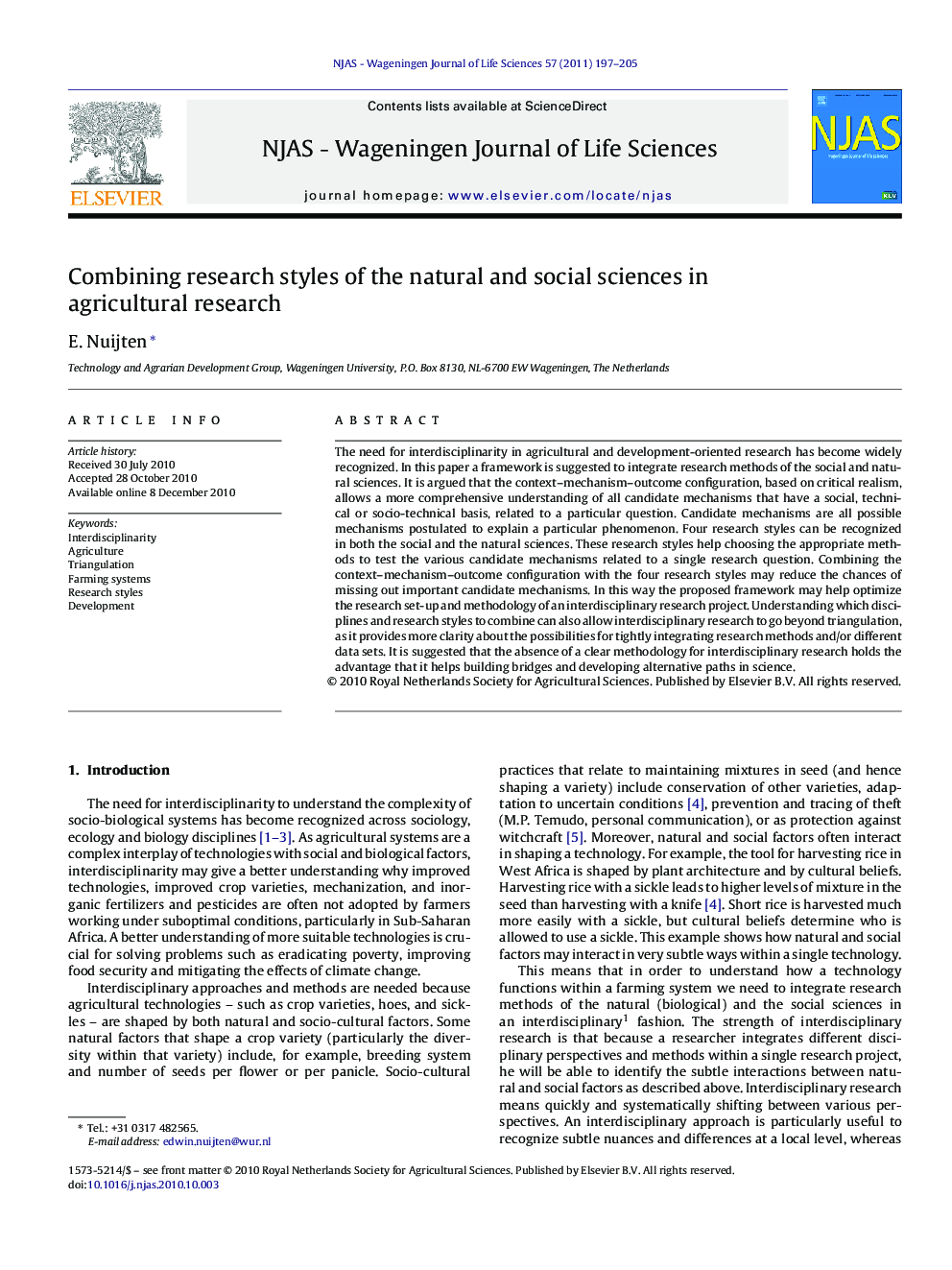| Article ID | Journal | Published Year | Pages | File Type |
|---|---|---|---|---|
| 4501404 | NJAS - Wageningen Journal of Life Sciences | 2011 | 9 Pages |
The need for interdisciplinarity in agricultural and development-oriented research has become widely recognized. In this paper a framework is suggested to integrate research methods of the social and natural sciences. It is argued that the context–mechanism–outcome configuration, based on critical realism, allows a more comprehensive understanding of all candidate mechanisms that have a social, technical or socio-technical basis, related to a particular question. Candidate mechanisms are all possible mechanisms postulated to explain a particular phenomenon. Four research styles can be recognized in both the social and the natural sciences. These research styles help choosing the appropriate methods to test the various candidate mechanisms related to a single research question. Combining the context–mechanism–outcome configuration with the four research styles may reduce the chances of missing out important candidate mechanisms. In this way the proposed framework may help optimize the research set-up and methodology of an interdisciplinary research project. Understanding which disciplines and research styles to combine can also allow interdisciplinary research to go beyond triangulation, as it provides more clarity about the possibilities for tightly integrating research methods and/or different data sets. It is suggested that the absence of a clear methodology for interdisciplinary research holds the advantage that it helps building bridges and developing alternative paths in science.
